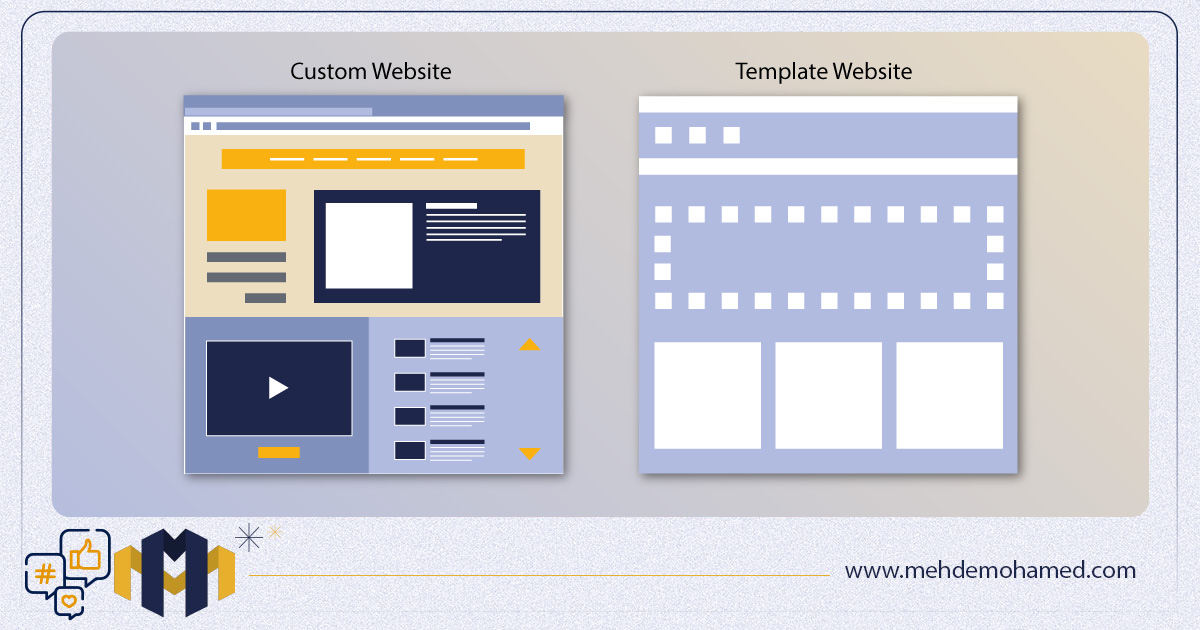Choosing a website type is crucial for your business. This article explores ” custom vs. template-based websites: which is right for your business?” and helps you decide.
Table of Contents
To make the best decision, you’ll learn about budget impacts, development timelines, brand identity, and functionality.
Key Takeaways
- Custom websites offer unique designs and functionalities tailored to your business, while template-based sites provide a quicker, more affordable solution with limited customization.
- Budget and timeline are crucial factors: custom sites take longer to develop. They are more expensive upfront but can lead to better long-term ROI due to scalability and tailored features.
- Brand identity matters—custom websites help create a distinct online presence, enhancing customer engagement, whereas template sites may lack uniqueness and flexibility as your business grows.
Defining Custom and Template-Based Websites
Creating a business website involves choosing between a custom-built site or a template-based one. A custom website is tailored specifically to your business needs and built from scratch, reflecting your brand’s unique identity and requirements.
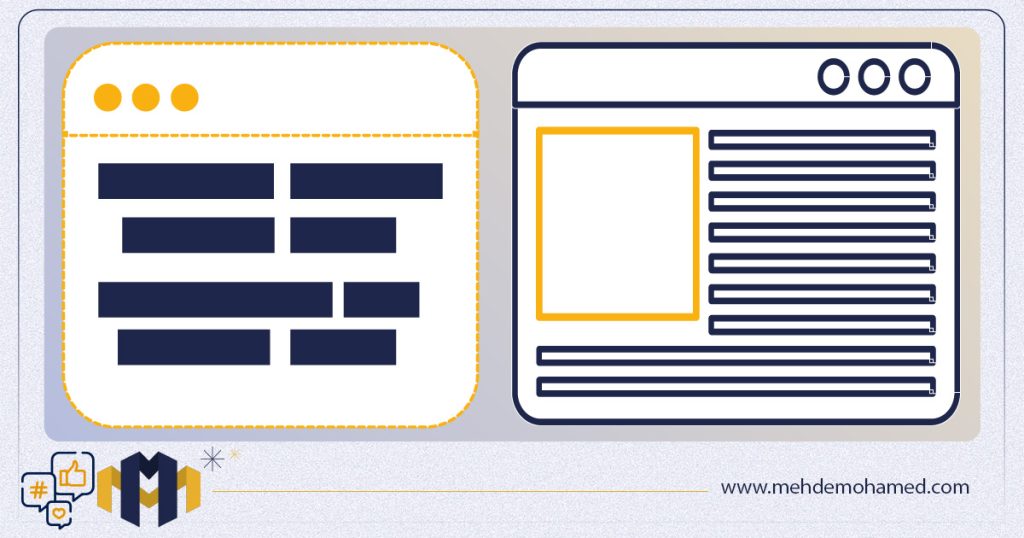
Custom vs Template Based Websites
This approach offers extensive flexibility in design, enabling the addition of unique features that align with your business goals, including a custom designed site.
Template websites use pre-designed layouts from various platforms, offering a quicker and more cost-effective solution for businesses with limited budgets or urgent timelines. While website templates offer numerous design options, they can restrict your brand’s ability to showcase its uniqueness, especially if you are using the same template.
Custom websites offer unique, tailored custom web design and custom designed custom design perfectly aligning with your brand identity, while template websites use standard layouts that can result in similarities with other custom site and custom website design. When considering custom website vs template options, the differences become clear.
Recognizing these fundamental differences helps in exploring other aspects of website development, beginning with budget considerations.
Budget Considerations for Custom vs Template Based Websites
Budget often plays a crucial role in deciding between custom and template-based websites. Custom-built websites are generally more costly due to the extensive design and development work required. This investment, however, results in a unique online presence that can significantly benefit your business in the long run.

Custom vs Template Based Websites
Alternatively, template websites are quicker and cheaper to implement, making them ideal for simpler projects with limited features. Small startups or local businesses often benefit from template-based websites due to their affordability and quick setup time, allowing them to establish an online presence without significant financial strain.
While the initial costs of template websites are lower, they may incur higher long-term expenses due to limitations in customization and scalability. Another important consideration is the timeline for development.
Timeline for Development: Custom vs Template Based Websites
Development timelines can vary greatly between custom and template-based websites. Template websites can be launched in a matter of hours or days, offering a quick solution for businesses needing to go live immediately. This rapid deployment makes template websites suitable for urgent projects or temporary landing pages.
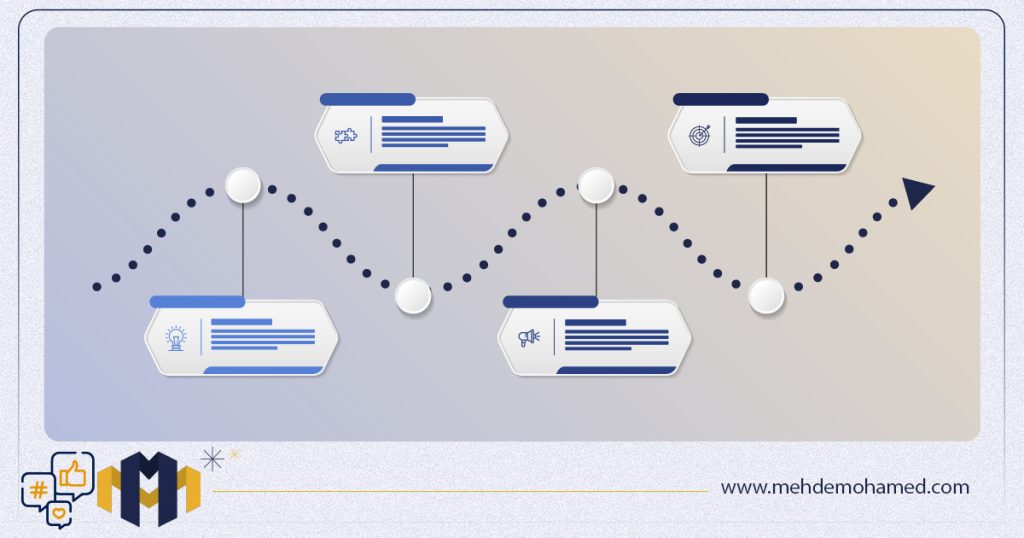
Custom vs Template Based Websites
In contrast, custom websites require a longer development timeline, typically ranging from 3 to 6 months. This extended period allows for detailed planning, design, and coding to ensure the website meets all specific business needs and provides a unique user experience.
While the quick setup of template websites is appealing, they may lack the depth of customization available through custom web designs, often requiring a redesign or migration to a custom solution as the business grows. The impact on brand identity and website design is also a key consideration.
Brand Identity and Website Design
Your brand identity significantly influences how your business is perceived online. Custom websites enable brands to create a distinct online presence that accurately reflects their unique identity. With a custom website, businesses maintain full ownership and control over their online identity, ensuring that every design element aligns with their brand’s visual style.

Custom vs Template Based Websites
Design elements like color, typography, and layout in custom websites help businesses stand out from competitors. This personalized approach enhances brand positioning and fosters stronger customer relationships by building trust and loyalty.
A website design agency can also optimize user experience with intuitive navigation and tailored interactions, facilitating visitor engagement.
Conversely, template websites, despite offering numerous design options, can restrict a brand’s ability to showcase its uniqueness. These pre-designed layouts might not fully capture your brand’s essence, potentially leading to a less memorable online presence. This limitation can impact customer engagement and brand loyalty in the long run.
Next, let’s examine the functionality and features of custom and template-based websites.
Functionality and Features: Custom vs Template Based Websites
A major advantage of custom websites is their ability to integrate unique functionalities tailored to the business’s needs. Businesses using custom websites often report enhanced functionality and integration capabilities that cater to their specific operational requirements.
This flexibility allows for the incorporation of advanced features and seamless adaptation to future technological advancements.
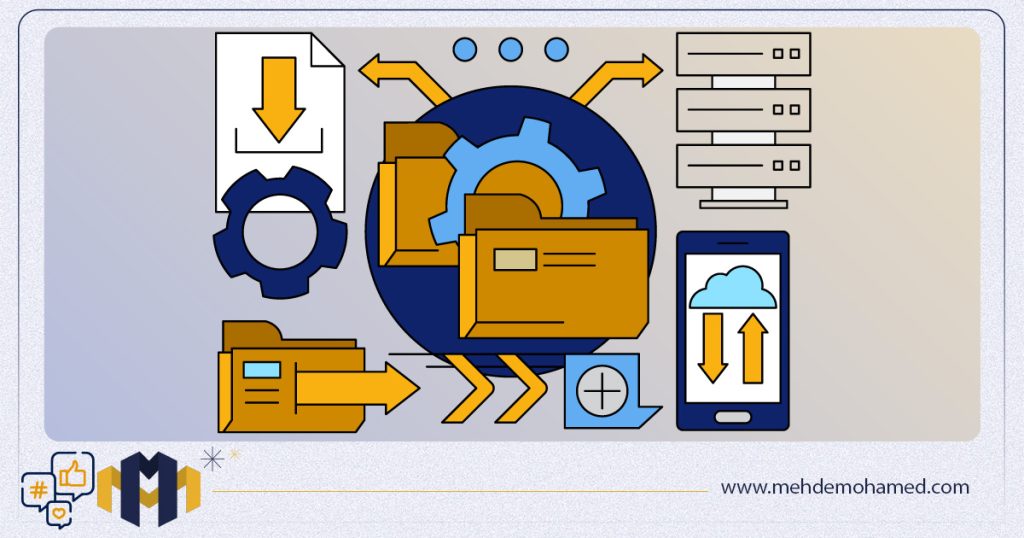
Custom vs Template Based Websites
While template websites offer built-in features like responsive design and SEO-friendly structures, they often lack the flexibility needed for extensive customization. Pre-made templates may require complex coding for design alterations, limiting their adaptability in the long run.
Additionally, template-based sites often share design similarities with other websites using the same framework, making differentiation more challenging.
Custom websites can scale easily as businesses grow, while template-based sites may face limitations that worsen with increased traffic. Scalability and future growth are crucial factors to consider.
Scalability and Future Growth
Custom websites are built with scalability in mind, allowing for future growth and adaptation of your online presence. They offer the flexibility to add new features and components as your business evolves, ensuring seamless integration of specialized functionalities according to changing business demands.

Custom vs Template Based Websites
This scalability makes custom websites a cost-effective investment in the long run, as they can be modified to meet new demands without significant additional costs.
In contrast, template-based websites may lead to more expenses over time due to their limitations in customization and scalability. As your business grows, you might find the need to migrate to a custom solution to accommodate your expanding requirements.
Let’s now discuss the security and maintenance aspects of custom and template-based websites.
Security and Maintenance
Security is a top priority for any business website. Custom websites allow developers to implement strong security measures tailored specifically to the site’s needs, making them more secure compared to template websites. Tailored security practices, including specific security features, can effectively protect against threats and vulnerabilities, providing peace of mind for business owners.

Custom vs Template Based Websites
Template websites can face security vulnerabilities due to their widespread use, making them attractive targets for hackers. These websites often rely on generic security measures, which may not be sufficient to protect against sophisticated attacks. Continuous updates and monitoring are essential to maintain security and functionality for both custom and template-based websites.
Ongoing maintenance is crucial for ensuring that your website functions properly and remains secure. Custom websites require continuous attention, regular updates, security patches, and technical support to cater specifically to the business’s needs. Similarly, template-based websites also need regular maintenance to address any security issues and keep up with user traffic.
Let’s examine some real-world examples and case studies to see these concepts in action.
Real-World Examples and Case Studies
A leading e-commerce company used a custom website to enhance its user experience and saw a 25% increase in sales following the launch. This example highlights the benefits of a tailored approach, where unique functionalities and optimized user interactions can significantly impact business performance.
An online service provider successfully used a template-based website, reducing development time and costs by 40%. This case demonstrates how template websites can be an effective solution for businesses needing their own site quickly and cost-effectively online presence. Additionally, a template based site can streamline the process even further.
A small business implemented a template website and achieved a significant boost in traffic, leading to increased customer engagement. This shows that template-based solutions can also be beneficial, especially for businesses looking to establish their online presence quickly.
With these examples in mind, let’s explore the SEO and performance considerations for custom and template-based websites.
SEO and Performance Considerations
Custom websites offer better SEO capabilities, giving businesses more control over their visibility on search engines. They can be specifically structured to enhance rankings and drive organic traffic, ensuring a strong online presence. Efficient coding in quality custom website enhances performance, leading to faster loading times and a better user experience.
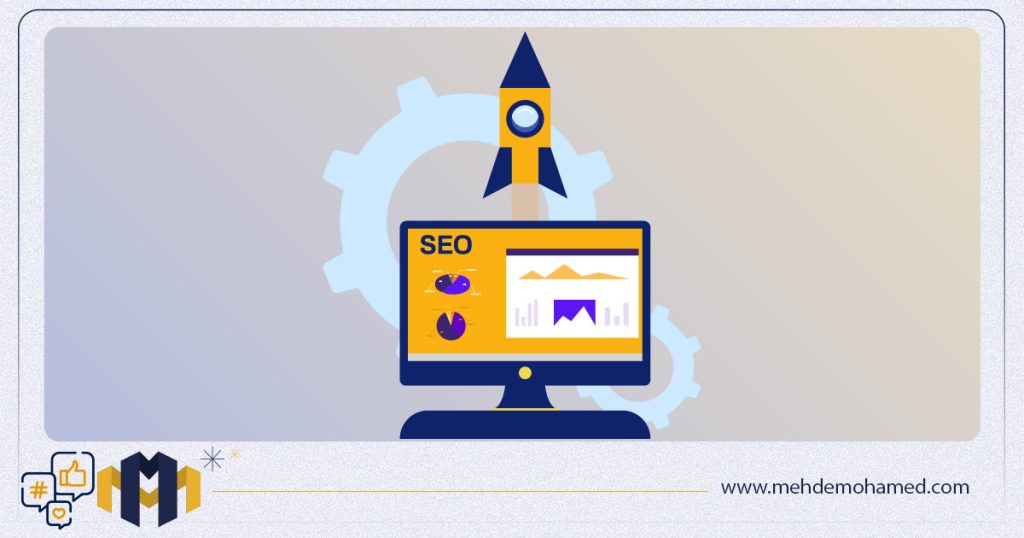
Custom vs Template Based Websites
Template-based websites, while optimized for SEO, may struggle with performance issues due to extraneous code and built-in features that can hinder speed. These performance issues can negatively affect your site’s loading time and overall user experience, impacting your search engine rankings.
Ensuring your website follows SEO best practices is essential for both custom and template-based solutions to succeed in the digital landscape.
Next, let’s discuss the cost efficiency and return on investment (ROI) of custom and template-based websites.
Cost Efficiency and ROI
Considering cost efficiency and ROI requires looking beyond the initial investment. Custom websites, although more expensive upfront, tend to be more cost-effective in the long run. This is because they are built to adapt to future needs, reducing the need for costly updates and redesigns down the line.

Template websites, while offering upfront savings, may lead to higher long-term costs due to performance issues and the need for regular updates to keep up with business growth. These ongoing expenses can offset the initial cost benefits, making custom websites a more financially sound choice over time.
The higher ROI of custom websites ultimately comes from their ability to provide better user interaction and conversion rates, driving more significant business results. Now, let’s summarize the key points discussed in this blog post.
Summary
Choosing between a custom website and a template-based website depends on various factors, including budget, timeline, brand identity, functionality, scalability, security, and long-term ROI. Custom websites offer unparalleled flexibility, unique design, and scalability, making them ideal for businesses looking to create a distinct online presence and grow over time.
Template websites, on the other hand, provide a cost-effective and quick-to-implement solution, suitable for smaller projects or businesses with limited budgets.
In conclusion, the right choice for your business will depend on your specific needs and goals. By carefully considering the aspects discussed in this blog post, you can make an informed decision that aligns with your business strategy and sets you up for long-term success.
Read more about Predicting the Future of WordPress
Frequently Asked Questions
What is the main difference between custom and template-based websites?
The main difference is that custom websites are tailored to your specific needs from the ground up, whereas template-based websites use pre-designed layouts that can limit how much you can change. If you want full control and personalization, go for custom; if you need something quick and straightforward, a template might do the trick.
Are custom websites more expensive than template-based websites?
Absolutely, custom websites are usually more expensive upfront because of the personalized development. But they can save you money over time since they can be tailored to grow with your needs.
How long does it take to develop a custom website compared to a template-based website?
A custom website usually takes about 3 to 6 months to develop, whereas a template-based website can often be up and running in just a few hours or days. So, if you’re short on time, templates might be your best bet!
Can template-based websites be optimized for SEO?
Absolutely, you can optimize template-based websites for SEO, although they might lag behind custom sites in performance because of extra code and features. With some tweaks and best practices, you can improve their search visibility.
Which type of website is better for scalability and future growth?
Custom websites are better for scalability and future growth because they can adapt to your changing business needs and incorporate advanced features as you expand. This flexibility sets them apart for long-term success.
